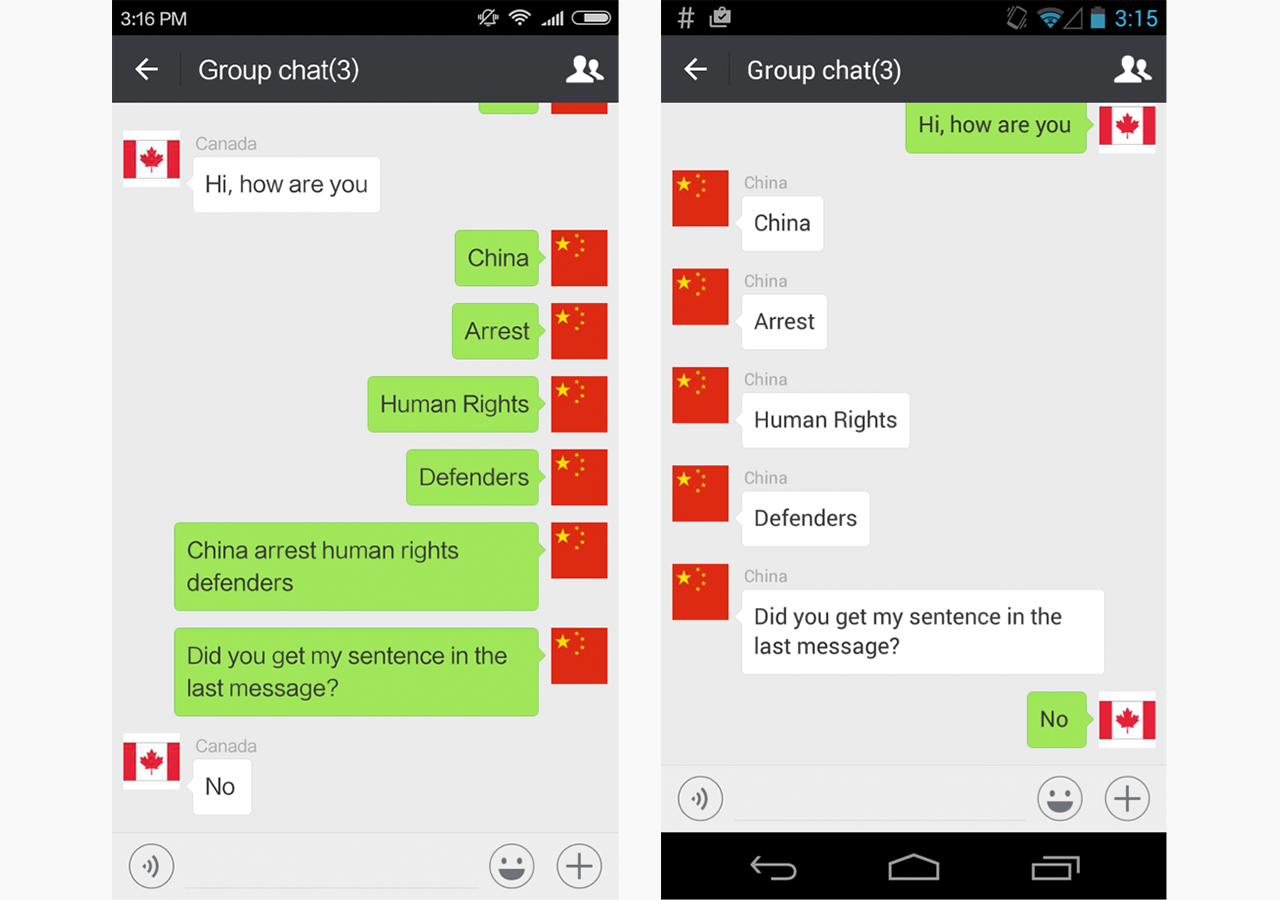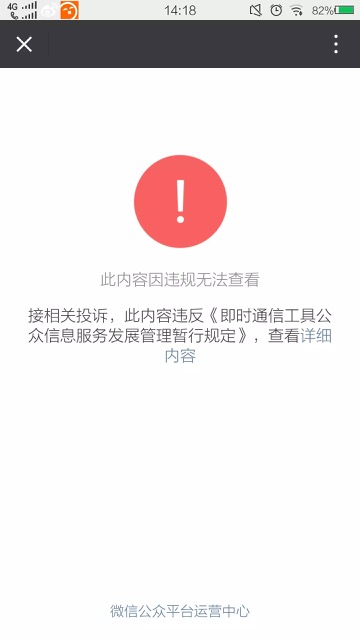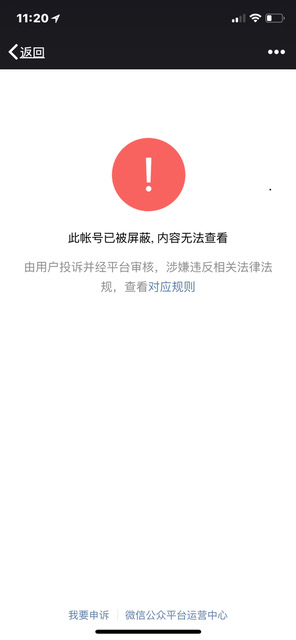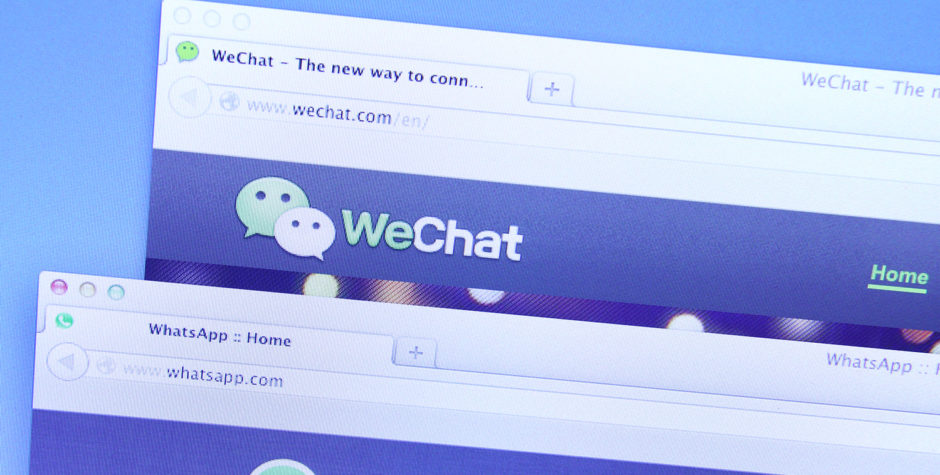China’s Crackdown on WeChat – Will the Last Free Platform for Chinese Christians to Share the Gospel be Destroyed?
China exercises highly restrictive internet censorship. In addition to blocking more than 3,000 foreign websites, including Twitter, Facebook, and Instagram, the Chinese government also closely monitors local Chinese websites. However, the creation of WeChat allowed a platform of free speech to exist for a short while.
Anyone that lives in China for a while will soon find out that WeChat is essential for everyday life in China. It started as a private messaging system similar to Whats App and Facebook Messenger, yet later transformed into a powerful and comprehensive tool.
In addition to chat, talk, and video calls, users could form private chatrooms with a maximum of 500 people called “WeChat Groups.” WeChat users can follow friends’ statuses in “WeChat Moments,” just like on Facebook, and users can also subscribe to “Public WeChat Accounts” to read news, find nannies, buy groceries, order food, read e-books, pay utility bills, recharge cell phone fees, handle individual finances – such as money transfers and personal investments – arrange travel accommodations, call taxis and Uber, and assist in every other need people in China encounter in their daily lives.
WeChat can also be used commercially for organizing multiple-party conference calls, transferring various forms of work documents, and distributing advertisements and promoting material goods. Even lawyers are providing legal advice through WeChat. Currently, there are almost 900 million people using WeChat, outnumbering the total 731 million Chinese internet users.
More importantly, WeChat has provided Chinese internet users with a certain level of freedom of speech, which is scarce under China’s internet censorship. This is because the messages sent between users are relatively private, as compared to the public internet. WeChat messages can spread to a wide audience as quickly as traditional news through WeChat Groups, WeChat Moments, and WeChat Public Accounts.
Many Christians have been successfully using WeChat as a platform to reach out to the 900 million users. Users can use private chat or WeChat Moments to witness to their friends, which may not otherwise be allowed on campus or at work. They can also use WeChat conference calls to organize Bible studies that otherwise may be interrupted by local police if held at home, and create various WeChat Public Accounts to publish commentaries, devotionals, prayers, and testimony videos that might not be permitted to be published by other traditional means.
WeChat has always been subject to some internet censorship. For example, some sensitive words are blockedand the program will send out an error message if used (see the example in Image 1 below from Citizen Lab, a research group from the University of Toronto). Moreover, some articles from WeChat Public Accounts may also be blocked from users’ view (see the example in Image 2, which says the content violates relevant laws and regulations, and cannot be viewed) and the program may block the user’s whole Account (see Image 3 stating that this account is blocked and the content cannot be viewed).



The censorship, however, used to be narrowly focused on politically oriented speech, and thus did not affect other kinds of general speech, including religious speech. A series of cyber-related regulations were published recently intending to heighten control of the Internet, including the Administrative Regulations on Internet News and Information Services and Administrative Regulations on Internet Groups Information and Services.
According to the text, these regulations are only to prevent political rumors, radical terrorist’s comments, and other extreme speech that may affect national security. None of these regulations are targeting Christianity, or even religion as a whole, and no articles have forbidden internet users from sharing religiously related messages. The actual implementation of these regulations, however, has been broadened. Christian related messages sometimes are considered sensistive and are blocked. For example, a recent application for a new WeChat Public Account by a house church – that would have been easily approved in the past – was rejected. Similarly, books, such as, Faith and Order by Herold Berman, Witnessing Their Faith by Jay Sekulow, and Christianity and the Constitution by John Eidsmoe, published in China years ago, are now forbidden to sell on WeChat simply because their titles contain the words “Faith” or “Christianity”.
Many Christians, who use WeChat as their main media outlet to share the gospels and organize various ministries, are starting to feel increased pressure to stop using WeChat for these activities. More and more faith-based messages are being blocked in the same way that politically sensitive messages are blocked, and some faith-based WeChat Public Accounts that had a large number of subscribers were closed by the government. In order to continue to use WeChat and protect accounts from being blocked, many Christian are forced to make compromises and craft the content so that it may not be considered sensitive.
Now that “faith” and “Christian” have become sensitive words, Chinese Christians are forced to use more antiquated terms, such as “bread” instead of “the Bible,” and “living water” instead of “Jesus Christ” to discuss the basic tenents of their faith.
The increased censorship not only curtails the rights of the people in China, but may also erode the freedom of speech around the globe when many multi-national companies rush to China to make deal with the Chinese government by sacrificing basic human rights. The international business world is accepting the authoritarian view of the Chinese government. Apple’s CEO Tim Cook recently publicly endorsed China’s internet censorship, while Facebook’s CEO Mark Zuckerberg seems to make any compromise to get Facebook into China. It should not just be the human rights organizations that have the obligation of defending basic human rights such as freedom of speech and freedom of religion, but it should be a joint effort by every individual and company to defend these basic human values.
